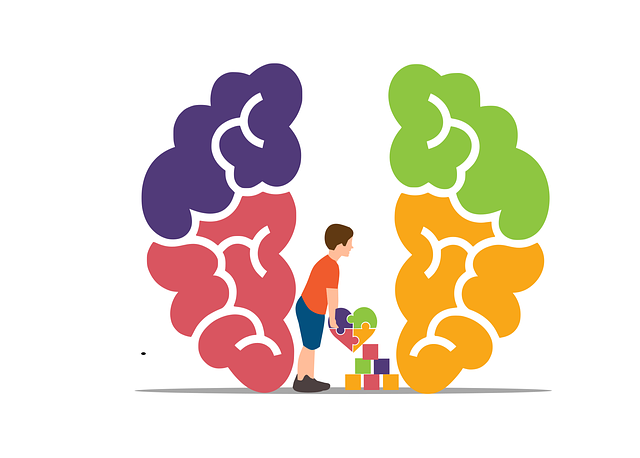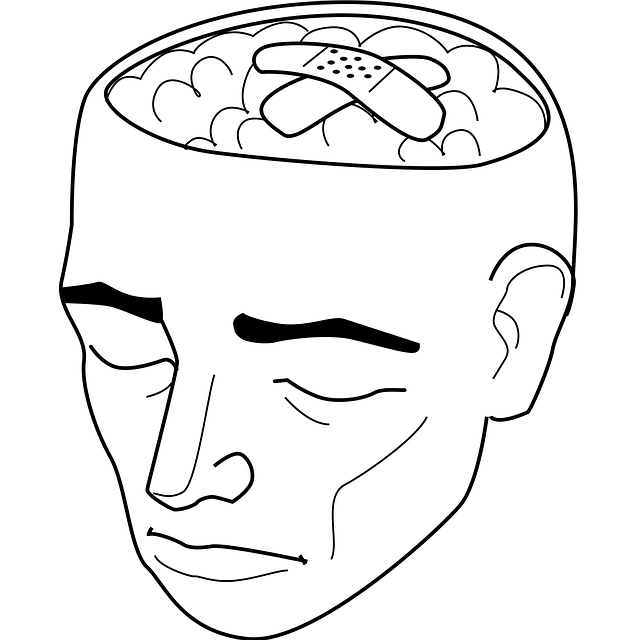Creating a podcast focused on mental wellness, specifically addressing conditions like Centennial ADD-ADHD, involves several key elements. It aims to improve awareness, reduce stigmas, and offer support through education and personal stories. The target audience includes those with anxiety, depression, and ADD/ADHD, as well as students and working professionals seeking mental health literacy enhancement. Podcast formats can include expert interviews or narrative storytelling, emphasizing practical insights, coping skills, and therapeutic value. Strategic planning, collaboration with experts, and high-quality production are essential for engaging content that balances education and personal connection, ensuring a valuable listening experience for diverse mental wellness concerns.
“Unleash the power of audio with a mental wellness podcast series. In today’s digital age, understanding and discussing mental health is more crucial than ever. This guide takes you on a journey through the process of creating a compelling podcast focused on Centennial ADD-ADHD Evaluations Therapy. From gauging your audience’s needs to selecting the right format and planning content, each step ensures an engaging and informative experience. Learn essential production techniques and tools to bring your podcast vision to life.”
- Understanding Mental Wellness and Its Impact: Setting the Stage for Podcast Creation
- Target Audience Definition: Who Will Benefit from Your Podcast Series?
- Choosing a Podcast Format: Exploring Different Styles for Effective Communication
- Content Planning and Structure: Creating an Engaging and Informative Curriculum
- Production Techniques and Tools: Bringing Your Centennial ADD-ADHD Evaluations Therapy Podcast to Life
Understanding Mental Wellness and Its Impact: Setting the Stage for Podcast Creation

Understanding mental wellness is paramount when setting the stage for podcast creation focused on this subject. Mental health awareness encompasses a broad spectrum of emotional, psychological, and social well-being. It includes our ability to cope with stress, make choices, and relate to others. Recognizing that issues like Centennial ADD-ADHD evaluations and therapy are integral parts of mental wellness is crucial. These evaluations help identify conditions such as attention deficit hyperactivity disorder (ADHD), which can significantly impact daily life.
By delving into mental wellness, a podcast can foster better communication strategies and self-awareness exercises. It can serve as a platform to educate listeners about the various aspects of mental health, breaking down stigmas and promoting understanding. Whether it’s discussing coping mechanisms, sharing personal stories, or providing expert insights, such content plays a vital role in shaping a more inclusive and supportive society.
Target Audience Definition: Who Will Benefit from Your Podcast Series?

The target audience for a mental wellness podcast series is diverse and multifaceted. It primarily comprises individuals struggling with mental health issues, such as anxiety, depression, or, specifically, those diagnosed with Attention Deficit Disorder (ADD) or Attention Deficit Hyperactivity Disorder (ADHD). The series can offer much-needed support and guidance to these listeners by providing insights into various therapy options, from cognitive-behavioural therapy to alternative approaches like mindfulness practices.
Furthermore, the podcast can appeal to a broader audience interested in enhancing their mental health literacy. This includes students, working professionals, and anyone looking to navigate stress and improve their overall well-being. By addressing topics related to mental illness stigma reduction efforts and mental health education programs design, the series can foster an environment of understanding and empathy. Even those seeking conflict resolution techniques for personal or professional disputes can find valuable tools and perspectives within these conversations, ultimately contributing to improved mental wellness in various aspects of life.
Choosing a Podcast Format: Exploring Different Styles for Effective Communication

When creating a mental wellness podcast series, selecting the right format is key to engaging listeners and effectively conveying information. Different styles cater to various learning preferences and can make complex topics more accessible. For instance, some podcasts opt for an interview format, inviting experts like psychologists or therapists to discuss specific mental health conditions, such as ADD-ADHD evaluations and therapy approaches. This allows for dynamic conversations that offer insights into best practices and personal stories, making it an appealing choice for audiences seeking guidance and inspiration.
Alternatively, narrative storytelling can be powerful in mental wellness podcasts. Presenting cases studies or sharing personal journeys of overcoming challenges related to mental health issues can be both informative and therapeutic. By weaving narratives, hosts can introduce coping skills development and compassion cultivation practices, providing listeners with practical tools and a deeper understanding of their own experiences. This format encourages empathy and offers a unique perspective on navigating the complexities of mental wellness.
Content Planning and Structure: Creating an Engaging and Informative Curriculum

Creating a compelling mental wellness podcast series requires careful content planning and structured curriculum design to engage listeners and deliver valuable information. Each episode should offer insights into various aspects of mental health, including coping skills development and mood management techniques. Start by identifying key themes and topics relevant to your target audience; for instance, exploring the impact of stress on daily life or providing strategies for improving self-care routine development for better mental health.
Integrate practical tips and real-life examples into the episodes to make them more interactive and applicable. Consider featuring expert interviews, such as therapists specializing in Centennial ADD-ADHD evaluations, to offer professional insights and diverse perspectives. Balance educational content with personal narratives to create an engaging atmosphere that fosters connection and encourages listeners to implement what they’ve learned. Ensure each episode flows logically, building upon the previous one, while leaving room for occasional stand-alone topics to cater to a broader range of interests and mental wellness concerns.
Production Techniques and Tools: Bringing Your Centennial ADD-ADHD Evaluations Therapy Podcast to Life

When producing a podcast focused on sensitive topics like Centennial ADD-ADHD Evaluations Therapy, it’s crucial to employ techniques that foster an engaging yet respectful narrative. Start by gathering high-quality audio equipment—a good microphone and headphones are essential for clear sound. Utilize noise-canceling features to eliminate background distractions, ensuring your audience hears only the intended content.
For a well-structured podcast, planning is key. Scripting can help; create an outline that balances informative segments with personal stories or interviews. Incorporate Crisis Intervention Guidance and Mind Over Matter Principles through expert guest appearances, offering practical tips for managing ADD/ADHD symptoms. Remember to address Cultural Sensitivity in Mental Healthcare Practice, ensuring diverse perspectives are represented to cater to a broad listener base. Regular editing post-production maintains the podcast’s flow, polishes the audio, and enhances the overall listening experience.
The journey of creating a mental wellness podcast, particularly focusing on Centennial ADD-ADHD Evaluations and Therapy, is both rewarding and impactful. By understanding your target audience, experimenting with diverse podcast formats, and meticulously planning content, you can craft an engaging series that offers valuable insights into managing mental health challenges. Utilizing the right production techniques ensures your podcast becomes a trusted resource, making a positive difference in the lives of listeners navigating their ADD-ADHD assessments and therapy journeys.














